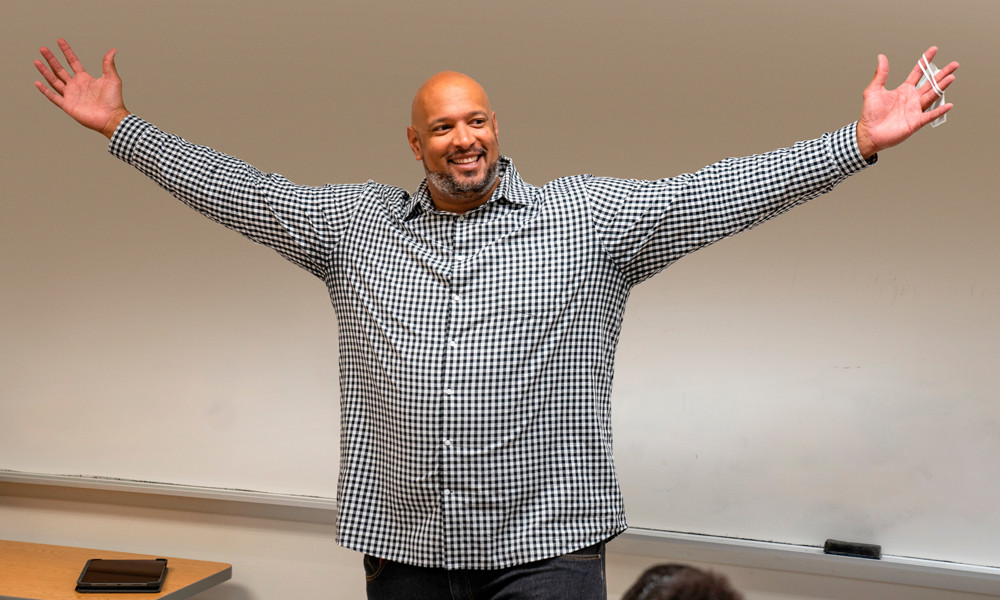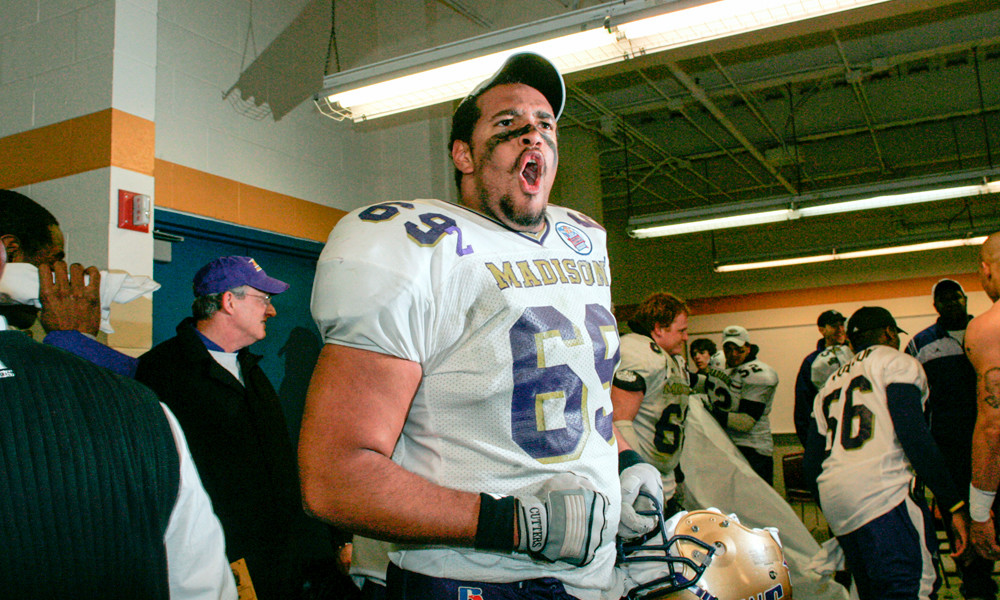Standing his ground
Featured Stories
SUMMARY: On Jan. 6, 2021, Harry Dunn ('05) and his fellow officers defended the Capitol from an angry mob that had stormed the building to try to stop lawmakers from certifying the results of the 2020 presidential election. Now, he is looking to join the ranks of those whom he previously defended.
As a former U.S. Capitol Police officer, Harry Dunn (’05) took an oath to protect and serve. “I’ve always liked the idea of protecting and serving, with an emphasis on serving,” he said.
On Jan. 6, 2021, Dunn and his fellow officers defended the Capitol from an angry mob that had stormed the building to try to stop lawmakers from certifying the results of the 2020 presidential election. Now, he is looking to join the ranks of those whom he previously defended. Dunn has launched a bid for Congress in Maryland’s 3rd District.
He has been outspoken about the insurrection and the need for new leadership, and has written a book, Standing My Ground: A Capitol Police Officer’s Fight for Accountability and Good Trouble After January 6th.
While the First Amendment gives every American the right to assemble peacefully and protest, Dunn said, “When those demonstrations turn violent and people are hurt, that’s when it becomes a problem. Now you’re breaking the law.”
“As ugly as January 6th was,” he said, “not one member of Congress or their staffs were hurt, and lawmakers went back [early the next morning] and certified the election, which made me so proud. Democracy did not stop.”
For his actions that day, Dunn was awarded the Presidential Citizens Medal.
The notion of service was awakened in Dunn at an early age. “My parents instilled in me, ‘Do unto others as you would have them do unto you.’ Treat people right,” he said.

|
A starting offensive lineman on the Dukes’ 2004 national championship football team, he credits his involvement in athletics at JMU with teaching him the value of working together to achieve common goals and overcome adversity.
The events of Jan. 6, 2021, amounted to “a stain on American history,” Dunn said, one that could resurface if the underlying causes are left untreated.
“We can’t ever let this happen again,” he said.
